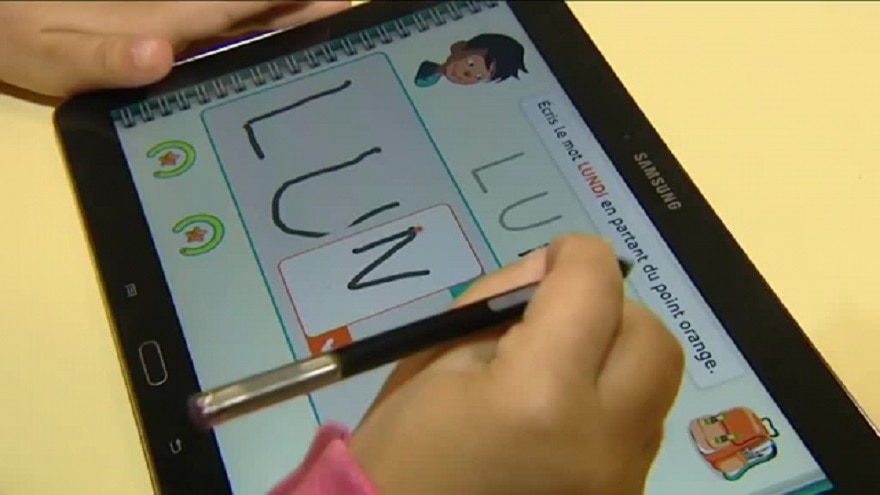In an increasingly competitive international environment, workers must be equipped with the right mix of skills to ensure that globalisation brings job creation and productivity gains rather than negative economic and social impacts, according to a new report published by the OECD. Litteracy and Numeratie are on the agenda: deciphering.
L’2017 edition of the OECD Skills Outlook which has just been released highlights wide disparities between countries in terms of the extent to which they are enabling their workers to acquire the skills required to take advantage of the globalization of production chains. The report shows that a country where the skill mix of the labour force matches the needs of technologically advanced industries can have a specialization advantage in these industries equal to 8 % on average. This advantage may even be as high as 60 % compared to countries where the skills of the labour force are not matched to the needs of these sectors.
"Competition between countries is increasingly based on the qualifications of their labour force. If the skill mix of a country's workforce is aligned with the needs of technologically advanced industries, specialization in these industries offers a comparative advantage.said Andreas Schleicher, Director of the OECD Directorate for Education and Skills, on the occasion of the launch of the report in London.. "In addition, workers who acquire new skills in certain areas, such as decision-making, are less vulnerable to the risk of relocating their jobs.
In general, global value chains (GVCs) - in which workers in different countries are involved in the design, manufacture and sale of the same product - are synonymous with productivity gains and job creation as they allow small firms and countries to connect to global markets. But they can also lead to job losses or stagnant wages if workers are unable to adapt to changing demand.
"In SVCs, where multiple factors of production can cross borders many times before the final product reaches consumers, and where an average of one-third of private sector jobs depend on foreign demand, innovation is crucial for employment. When industries innovate, employment increases, even in occupations characterised by repetitive tasks", said Andrew Wyckoff, Director of the OECD Directorate for Science, Technology and Innovation, in presenting the report. "But innovation is impossible without the right skills".
The 2017 edition of the OECD Skills Outlook shows that countries that fully joined the VMCs between 1995 and 2011 benefited from a strong acceleration in industrial labour productivity growth, ranging from an additional 0.8 percentage points for sectors with the lowest potential for output fragmentation to 2.2 percentage points for those with the highest potential, such as high-tech manufacturing.
To make the most of VMCs, companies need workers with literacy skills. (1) and numeracy (ability to understand numbers and use them for reasoning) (2)s, problem solving, management and communication skills, who are prepared to train throughout their careers. Indeed, the ability to understand and process information in printed or electronic form is nowadays essential to be able to participate fully in society and adapt to change. Literacy goes far beyond the ability to read and write. It is to meet these requirements that the Literacy and Numeracy Secretariat was established in November 2004 in Canada to increase student achievement. Highly qualified and experienced educators (known as Student Achievement Officers) work directly with schools and school boards across the province to build capacity and implement strategies to improve students' skills in reading, writing and math.
Already in 2000, the OECD launched the International Assessment Programme (IAP). PISAThe goal is to measure the skills of 15-year-old students in three areas: literacy, numeracy and scientific literacy. Each publication of the results of these surveys called attention to the differences in results between France and the other participating countries. (3).
The PISA approach, based on the concepts of literacy and numeracy, assesses not the assimilation of curricula but the ability of students to use them to interpret and solve problems in a variety of contexts.
Societal developments in recent decades have revealed the need for education systems to define key competences for lifelong learning. On the basis of this observation, the OECD initiated the DeSeCo8 project at the end of the 1990s, which defines key competences, divided into three categories: using tools interactively, interacting in heterogeneous groups and acting autonomously.
Secondly, in 2000, the Lisbon strategy enables the European Union to set its policies for lifelong learning. The European Framework of Reference takes up the distinctions of the DeSeCo project and defines eight key competences: 1. communication in the mother tongue; 2. communication in foreign languages; 3. mathematical competence and basic competences in science and technology; 4. Numerical competence; 5. Learning to learn; 6. Social and civic competences; 7. Initiative and entrepreneurship; 8. Cultural awareness and expression.
In France, on the basis of the OECD's key competencies and the Lisbon Strategy, the Common Base was put in place in 2006. It should be noted that in 2009, the Member States and the European Commission strengthened their cooperation with the strategic framework "Education and Training 2020. There is a clear demand on education systems to enable students to adapt to the changes and growing complexity of the knowledge-based society.
The more firms employ employees that fit this profile, the more the productivity gains generated by VSCs will spread throughout the economy. However, OECD analysis shows that about one in four adults in OECD countries has low literacy and numeracy skills.
According to the report, some countries have benefited from VMCs by specializing more in technologically advanced industries, improving the skill mix of their workforces and achieving good social and economic performance, including Germany, Korea and Poland.
Conversely, Finland and Japan have a highly skilled workforce but could benefit more from VMCs if they specialized even more in high-tech sectors. In particular, the skills of the workforce in the Czech Republic, Estonia, Japan, Korea, New Zealand and the Czech Republic best match the needs of the high-tech sectors.
For developing economies, which are generally at the lower end of value chains and where working conditions are often difficult, it is particularly important to invest in skills and increase participation in VVCs.
On average in OECD countries, one-third of private sector jobs depend on foreign demand, and 30 % of the value of exports comes from abroad.
This OECD report confirms Quebec's report by the Programme for the International Assessment of Adult Competencies (PEICA), published at the end of 2015, on individuals' literacy, numeracy and problem-solving skills as fundamental elements of societies' capacity to develop and innovate in the current context of modern transformation.
In an era characterized by the abundance and rapid circulation of information thanks to new technologies, it is essential to be able to decode, analyze and adequately use the textual and digital information to which we are exposed in our daily lives, both to meet personal needs, or new challenges at work, and to contribute to the economic, social and cultural enrichment of society. Acquiring and maintaining high levels of literacy, numeracy and problem-solving skills enables individuals to participate fully in society.
Actions that promote the enhancement, maintenance and development of these skills therefore deserve to be carried out on an ongoing basis and for the benefit of the greatest number of people. The challenge is therefore to succeed in diversifying approaches and involving pupils in contextualized situations, so that everyone can "successfully complete their schooling, continue their training, build their personal and professional future and prepare for the exercise of citizenship" (Decree No. 2006-830 of 11 July 2006). (4).

The report is part of the Skills Outlook series that the OECD publishes every two years to build on the results of its Adult Skills Assessment (ASA), an assessment of more than 150 000 people in 24 countries, which it conducted in 2013. The new book also builds on the OECD-WTO Value Added Trade (VAT) database, which provides an assessment of trade based on the value that is added each time a product or service is exported or imported along a global production chain.
(1) According to the Organisation for Economic Co-operation and Development (OECD), literacy is "the ability to understand and use written information in daily life, at home, at work and in the community to achieve personal goals and to extend one's knowledge and abilities".
(2) Numeracy: "the ability to locate, use, interpret and communicate mathematical information and concepts in order to [...] manage the mathematical demands of a range of adult life situations" (OECD, 2014: 20).
(3) A recent publication by Bruno SUCHAUT nevertheless puts these differences into perspective.
(4) Source : Departmental Working Group of Educational Advisors of Moselle – 2013












